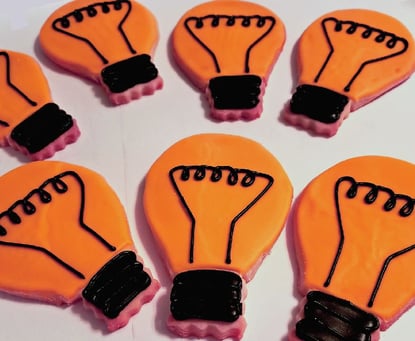 I’ve already been told The Brainzooming Group “World Headquarters” is going to have a document clean-up and organization day near the first of the year. It’s been a long-time coming, I know, but that doesn’t mean it’s going to be any less of a chore. I’ll admit to retaining a lot of project documentation materials.
I’ve already been told The Brainzooming Group “World Headquarters” is going to have a document clean-up and organization day near the first of the year. It’s been a long-time coming, I know, but that doesn’t mean it’s going to be any less of a chore. I’ll admit to retaining a lot of project documentation materials.
Quite frankly, I successfully go back to and use previously developed models and outlines from previous projects quite a bit. Before leaving the corporate world, I was handed a quick-turnaround assignment to develop a strategic marketing communications plan for a very infrequent business event. Interestingly, we had done a strategic plan for a similar situation years before. I was able to retrieve both paper and electronic copies of the document, creating an updated strategic marketing communications plan in only a few hours.
Long story short, if you can retrieve a project document when you need it, the strategy of retaining your past project documentation pays off in enhanced efficiency.
But in thinking about the decision making process for which documents to throw away, maybe these strategic guidelines I’m creating for myself will be helpful to you if you struggle with the same situations.
Here's my strategy for three types of project documentation I’m planning to jettison:
- Old Reference Material - In fast-developing markets, a lot of reference material simply isn’t relevant anymore. With changing business dynamics, the usefulness of historical studies and reports is likely deteriorating at an accelerating rate. The trick is figuring out which reference materials are worthless and which can still be good future inputs.
- Anything that Can Be Retrieved on the Internet – There’s no need to house a lot of secondary market research information that’s easily obtainable via the web. I’ll be clearing out historical project files and simply searching to find updated information if I need it in the future.
- Forgotten Work – If you can’t remember the work, and it’s not part of a filing system, you aren’t going to be able to get to it when you need it! You might as well work from memory and take the extra time to address it with a fresh perspective when it counts.
Let me know if you have any other tips!
I’ll be printing this post out and keeping my document retention strategy close when combing through and making decisions about the many boxes of old project documentation files waiting for me! – Mike Brown
The Brainzooming Group helps make smart organizations more successful by rapidly expanding their strategic options and creating innovative plans they can efficiently implement. Email us at brainzooming@gmail.com or call us at 816-509-5320 to learn how we can deliver these benefits for you.



